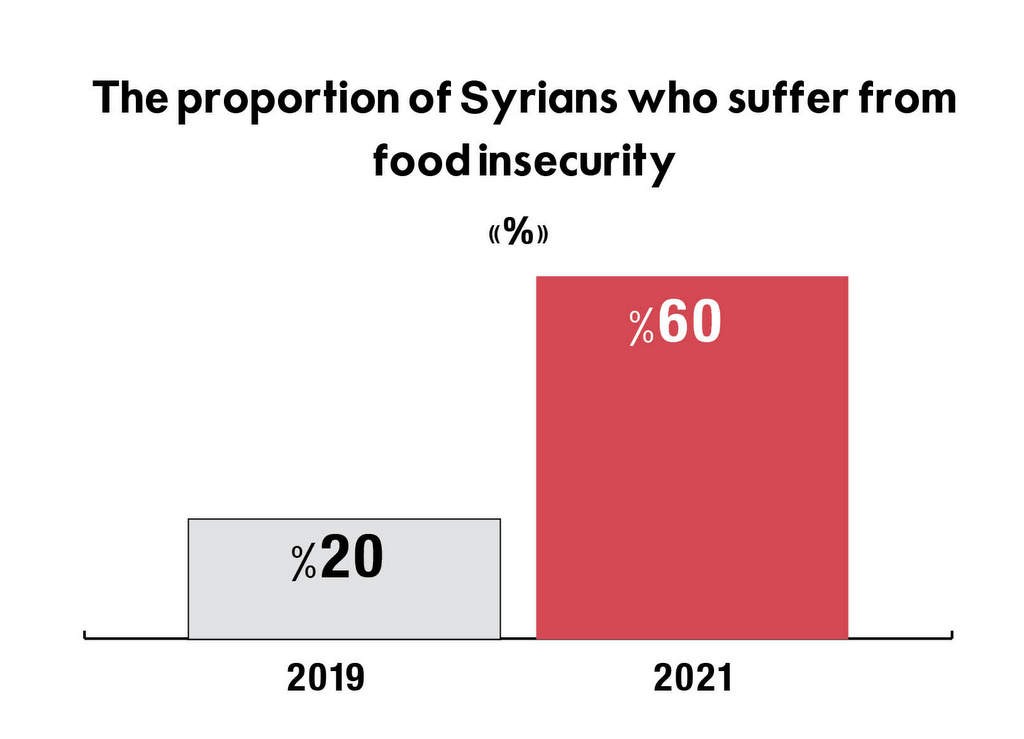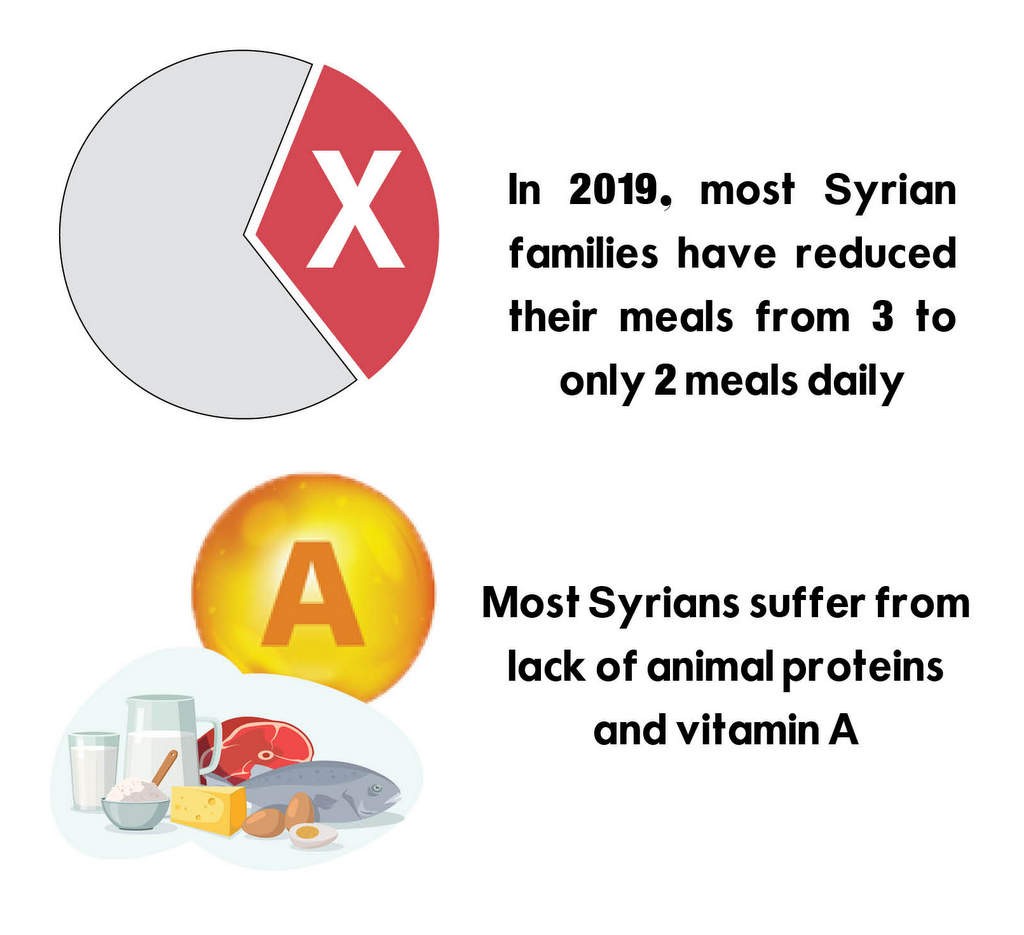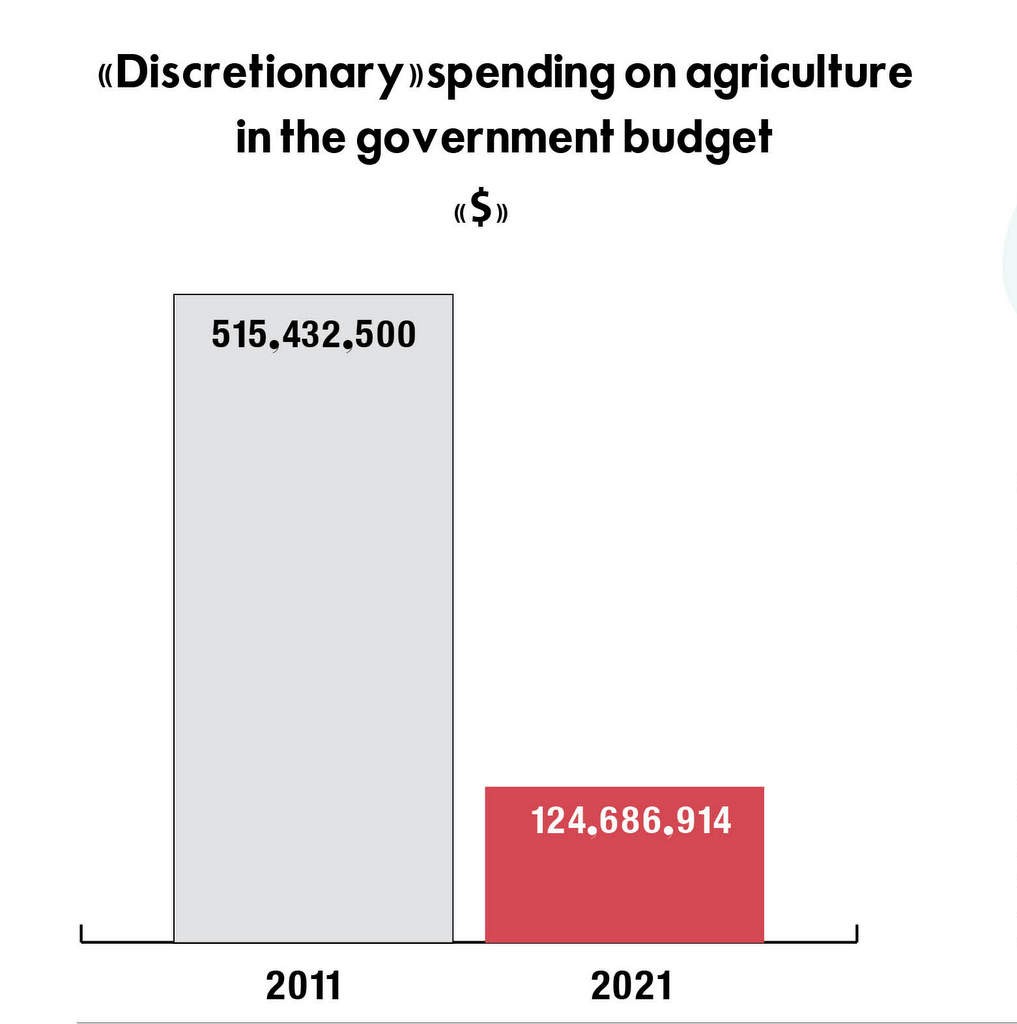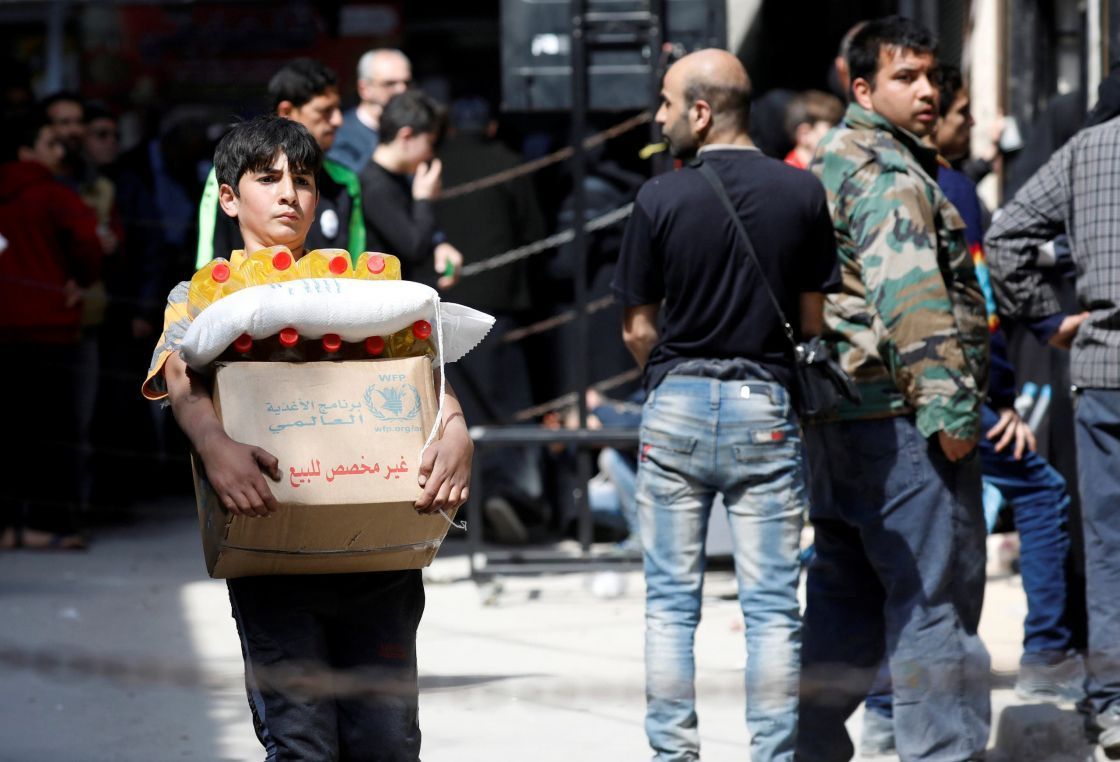- Articles
- Posted
Due to the Organized Plunder System: Food Insecurity Prevails Syria
Estimates of the disaster affecting the food system in Syria are increasing daily at an unprecedented pace, as there is an additional number of Syrians every year getting in a state of food insecurity, not in thousands or hundreds of thousands, but in millions. This is happening at an accelerated pace, which threatens to drag more citizens into destitution and poverty.
Over the months of the past year 2021, the numbers of Syrians suffering from food insecurity have continued to increase at unprecedented proportions, proving a state of decline regarding the aims of hunger reduction or even slowing it down. In this regard, the World Food Programme (WFP) has recently released its 2021 report, revealing some indications about the magnitude of the food crisis in Syria.

From 20% to 60% Within Two Years Only
Over the past year, the numbers of Syrians suffering from food insecurity have increased from 20% in 2019 to 60% in 2021, doubling once each year on average. In another way, 3 out of 5 Syrians suffer from food insecurity, while 12 million Syrians are actually facing severe food insecurity. The past year has been marked by an accelerated decline in the value of the Syrian pound, parallel to the increase in the prices of basic commodities and lifting government subsidies under various banners and pretexts such as “directing subsidies to those who deserve them”. This reflected effectively in a reduction in the real wages of Syrians, which was the main reason behind the increase of the number of additional Syrians suffering from food insecurity.

Mechanisms of “Adaption” through Bad Nutrition
According to international estimates, food system in Syria is based on excessive reliance on oils and sugars, followed by less reliance on bread, potatoes, and seasonal vegetables, then legumes, and a little meat. This causes malnutrition and lack in necessary and essential nutrients for humans, as a huge deterioration in the diversity of food system in Syria has occurred, which was proverbial in the past century, and it now consists of cheaper and non-nutrient-rich foods. According to the estimates, Syrians generally suffer from lack of animal proteins and vitamin A. This deficiency can be classified as structural in the Syrian diet, as we see that this deficiency has existed since before the outbreak of the crisis in the country in 2011, and the factors of undernutrition and livestock damage are pre-crisis factors. In this situation, Syrians can do nothing but “adapt” negatively to food decline and poverty, by resorting to mechanisms such as reducing the number of meals (in 2019, the World Food Programme (WFP) confirmed that most Syrian families in most governorates have reduced their meals from 3 to 2 meals a day only). In addition to reducing food rations for adults to satiate children, and intensify the reliance on bread (which is still targeted in government plans that are aiming to reduce bread subsidies in order to lift them, through wrap-around mechanisms such as the Smart Card and others).

Government Withdrawal and Decline in Subsidies
Apart from official statements which keep trying to poorly hide the truth, the withdrawal of the State from playing its role and the decline of government agriculture subsidies are responsible for the deterioration that affected Syrian food. (Discretionary) spending on the sector of agriculture in the government budget has decreased from $515,432,500 in 2011 to about $124,686,914 in 2021, i.e., a reduction by more than 75% within ten years only.
Decline in government discretionary spending is not the only indication of the neglect of government policies of the sector of agriculture, as there are several indications that can be mentioned in this context. For example, the decline in irrigated land through government irrigation projects from 817 thousand hectares in 2002 to 286 thousand hectares in 2019. In addition to the decline in the number of mills and the production of chicken, eggs, and cows within the same period at proportions that are incompatible with the conditions of the crisis, during which it was logical for the government to attach great importance to the sector of agriculture, which represents a reinforcement tool that cannot be abandoned under the conditions of destruction that affected the infrastructure, and the economic sanctions that contributed to the impoverishment of millions of Syrians. The government only mentions these conditions in a desperate attempt to “justify” its neglect of this vital sector.

Trade in People’s Food and Stalled Solutions
Like all fields of Syrian economy, food is considered one of the areas of activity of the country’s influential people, who accumulate enormous wealth as a result of profiteering from imported food, and exporting and smuggling locally grown food, as well as sucking up its government subsidies that are already being reduced. All these factors stand alongside the sanctions, shoulder to shoulder, limiting the ability of Syrians to recover.
If we wanted to put aside the attempts to shift the responsibility to one factor without seeing the whole picture, there will be only one way in which the Syrian food sector can be pushed to rise, or at least end its deterioration. A path that requires securing the conditions of increasing local agricultural production through encouraging farmers and facilitating their production with necessary government subsidies. Also, ending the current reduction in subsidies, and reducing the import bill, especially for materials that the country has the capacity to produce, such as sugar, which the country used to produce not so long ago but stopped due to the decline in subsidizing the cultivation of sugar beet, as well as targeting sugar factories and pushing them to close, or even slowing down the pace of their re-take-off (e.g. the factory in Homs, which announced that will return to operate tow times, in 2019 and 2020, and then announced last month that it was ceased once and for all).



